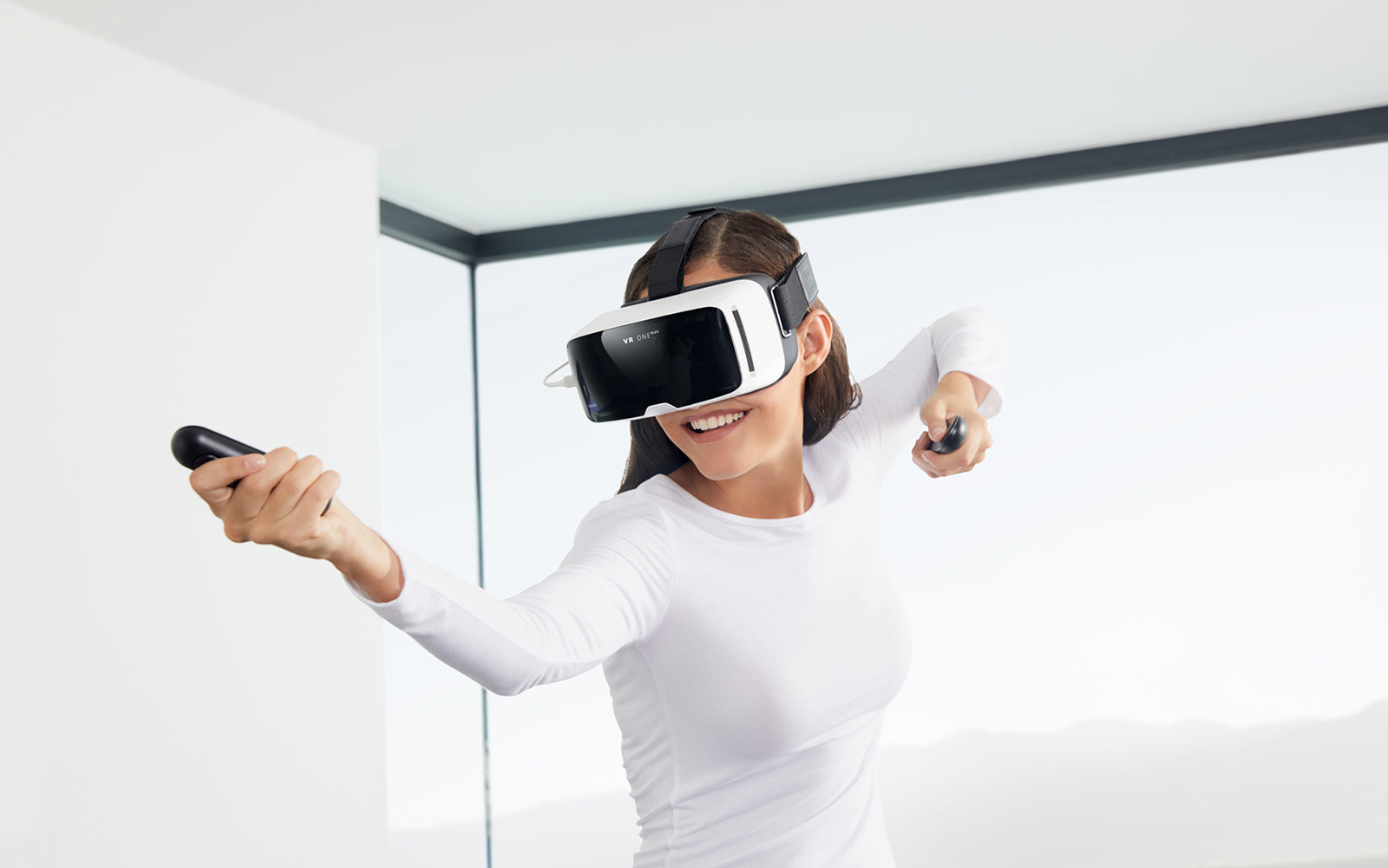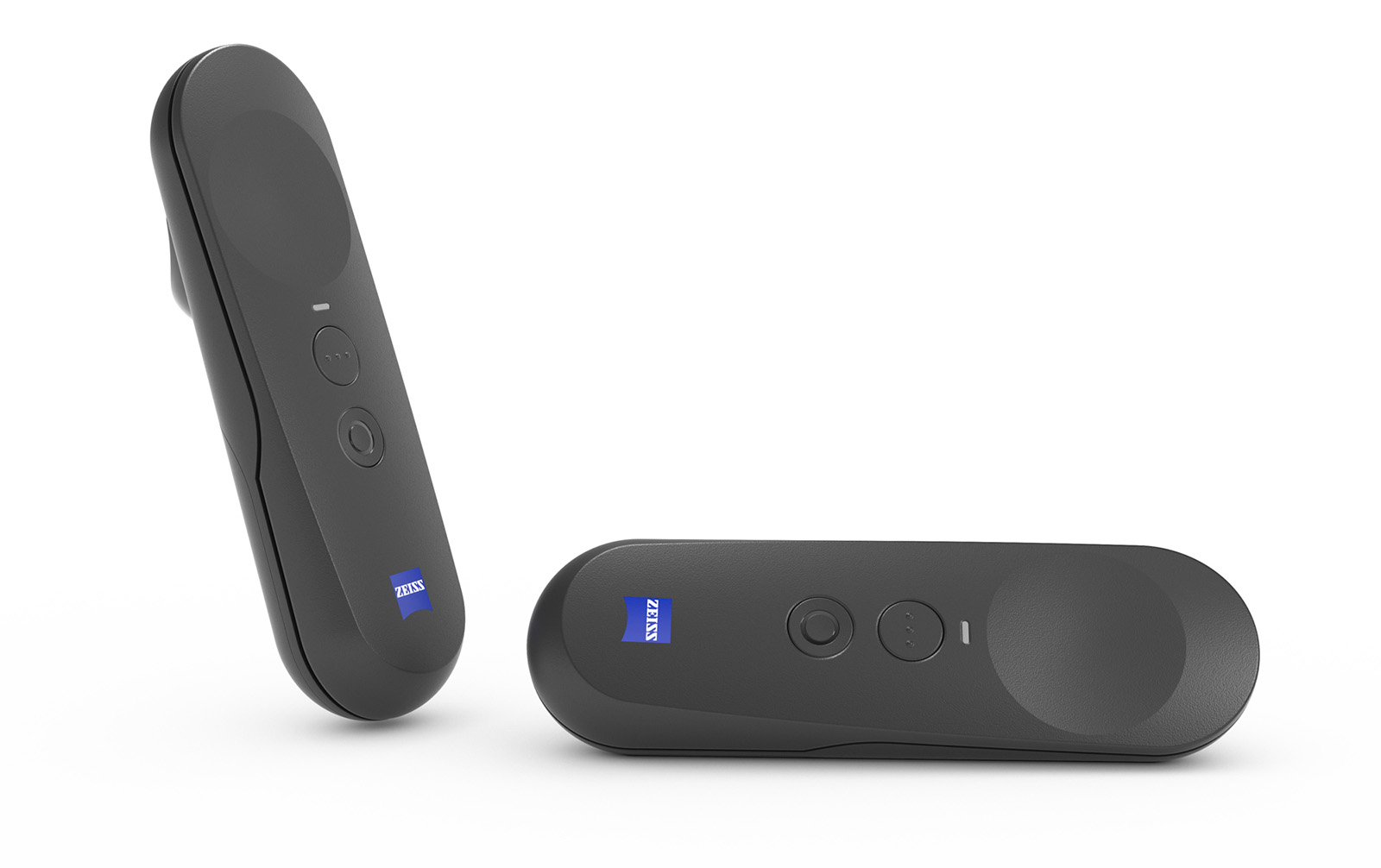
PC-powered VR gaming requires a minimum $500 investment just for the headset, but Zeiss and Steam have introduced a cheaper way to do it. The Zeiss VR One Connect runs SteamVR games powered by a PC, but sends a pre-rendered display signal to a smartphone installed in a mobile VR headset. You can then game using a pair of Zeiss wireless controllers, connected by Bluetooth to your iOS or Android smartphone with a screen between 4.7 and 5.5 inches.
Zeiss says you need a “current” smartphone (a minimum resolution isn’t specified) but can use other headsets besides its own $99 VR One. It supplies a USB cable (hopefully a long one) to connect to your SteamVR-compliant computer, and a pair of controllers . The game relies on your phone’s built-in motion sensors and Bluetooth chip, but all the game processing is done on the PC. (It’s hard to see it working on a Gear VR, unfortunately, as that headset hogs the USB port for itself.)

The controllers track three-degrees-of-freedom (3DoF) motion using inertial senor tech licensed from a company called PXL Vision. That data is married with your smartphone’s sensor data to calculate where your hands are in relation to the image on the mobile screen. That all has to work pretty well, or the controller and/or image lag could be pretty bad. Positional “room-scale” tracking isn’t available, so you’ll be confined to a single spot, standing or seated.
There are other solutions that let you watch movies and stream games on Samsung’s Gear VR and other headsets, but none approach the Zeiss VR One Connect sophistication. If you’re looking for a cheap PC VR gaming option, though, you’d be wise to wait. Oculus is reportedly coming out with a wireless, smartphone-free VR headset powered by mobile hardware, for one.
More pertinently, a crop of $300-400 mixed reality, PC-powered headsets from Acer, Dell HP and Lenovo are arriving soon. Those use built-in cameras to do “inside-out” motion tracking, allowing for room-scale mixed reality, and they look promising based on the limited demos we’ve seen. Hopefully we’ll see more at IFA 2017 in Berlin.
If the Zeiss app is implemented well, lag could be minimal, so we’re looking forward to trying it for ourselves. It’s coming to Best Buy and Game Stop in Q4 2017 for $129, or $199 with the Zeiss One VR headset.
[“Source-engadget”]










